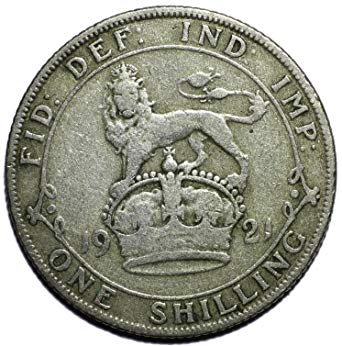
noun
- a cupronickel coin and former monetary unit of the United Kingdom, the 20th part of a pound, equal to 12 pence: retained in circulation equal to 5 new pence after decimalization in 1971. Abbreviation: s.
- a former monetary unit of various other nations, as Australia, Fiji, Ghana, Ireland, Jamaica, New Zealand, and Nigeria, equal to one twentieth of a pound or 12 pence.
- the monetary unit of Kenya, Somalia, Tanzania, and Uganda, equal to 100 cents.
- any of various coins and moneys of account used in various parts of the U.S. in the 18th and 19th centuries.
- shilling mark.
noun
- a person who poses as a customer in order to decoy others into participating, as at a gambling house, auction, confidence game, etc.
- a person who publicizes or praises something or someone for reasons of self-interest, personal profit, or friendship or loyalty.
verb (used without object)
- to work as a shill: He shills for a large casino.
verb (used with object)
- to advertise or promote (a product) as or in the manner of a huckster; hustle: He was hired to shill a new TV show.
noun
- a former British and Australian silver or cupronickel coin worth one twentieth of a pound: not minted in Britain since 1970Abbreviation: s, sh
- the standard monetary unit of Kenya, Somalia, Tanzania, and Uganda: divided into 100 cents
- an old monetary unit of the US varying in value in different states
- (in combination) Scot an indication of the strength and character of a beer, referring to the price after duty that was formerly paid per barrelsixty-shilling Symbol: /-
noun
- slang a confidence trickster’s assistant, esp a person who poses as an ordinary customer, gambler, etc, in order to entice others to participate
n.Old English scilling, a coin consisting of a varying number of pence (on the continent, a common scale was 12 pennies to a shilling, 20 shillings to a pound), from Proto-Germanic *skillingoz- (cf. Old Saxon, Danish, Swedish, Old Frisian, Old High German skilling, Old Norse skillingr, Dutch schelling, German Schilling, Gothic skilliggs). Some etymologists trace this to the root *skell- “to resound, to ring,” and others to the root *(s)kel- (1) “to cut” (perhaps via sense of “shield” from resemblance or as a device on coins; see shield (n.)). The ending may represent the diminutive suffix -ling, or Germanic -ing “fractional part” (cf. farthing). Old Church Slavonic skulezi, Polish szelang, Spanish escalin, French schelling, Italian scellino are loan-words from Germanic. n.“one who acts as a decoy for a gambler, auctioneer, etc.,” 1916, probably originally circus or carnival argot, probably a shortened form of shillaber (1913) with the same meaning, origin unknown. The verb is attested from 1914. Related: Shilled; shilling. see cut off (with a shilling).
 Liberal Dictionary English Dictionary
Liberal Dictionary English Dictionary